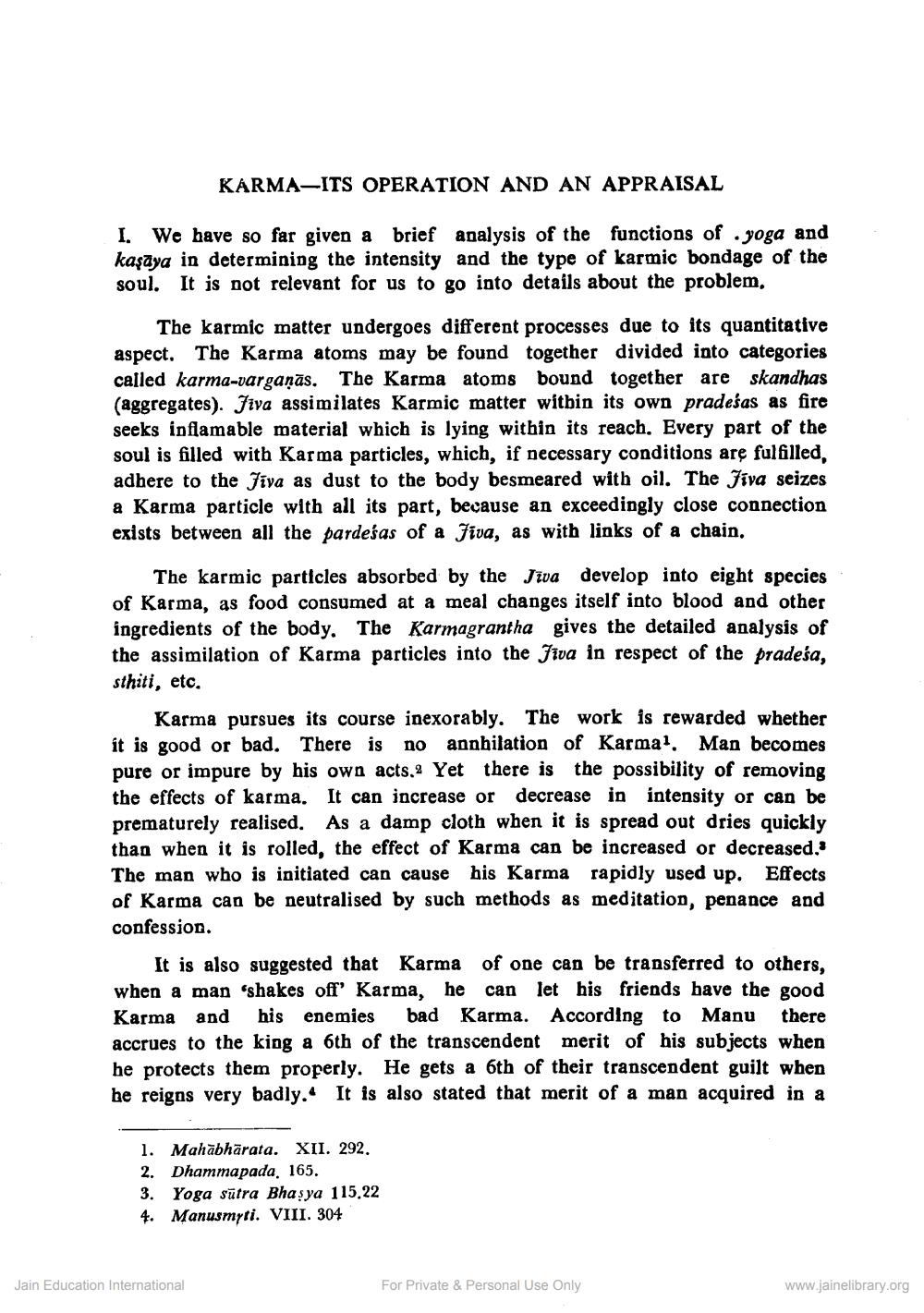________________
KARMA-ITS OPERATION AND AN APPRAISAL
1. We have so far given a brief analysis of the functions of yoga and kaşaya in determining the intensity and the type of karmic bondage of the soul. It is not relevant for us to go into details about the problem.
The karmic matter undergoes different processes due to its quantitative aspect. The Karma atoms may be found together divided into categories called karma-varganās. The Karma atoms bound together are skandhas (aggregates). Jiva assimilates Karmic matter within its own pradeśas as fire seeks inflamable material which is lying within its reach. Every part of the soul is filled with Karma particles, which, if necessary conditions are fulfilled, adhere to the Jiva as dust to the body besmeared with oil. The Jiva seizes a Karma particle with all its part, because an exceedingly close connection exists between all the pardeśas of a Jiva, as with links of a chain.
The karmic particles absorbed by the Jiva develop into eight species of Karma, as food consumed at a meal changes itself into blood and other ingredients of the body. The Karmagrantha gives the detailed analysis of the assimilation of Karma particles into the Jiva in respect of the pradeśa, sthiti, etc.
Karma pursues its course inexorably. The work is rewarded whether it is good or bad. There is no annhilation of Karmal. Man becomes pure or impure by his own acts. Yet there is the possibility of removing the effects of karma. It can increase or decrease in intensity or can be prematurely realised. As a damp cloth when it is spread out dries quickly than when it is rolled, the effect of Karma can be increased or decreased." The man who is initiated can cause his Karma rapidly used up. Effects of Karma can be neutralised by such methods as meditation, penance and confession.
It is also suggested that Karma of one can be transferred to others, when a man (shakes off' Karma, he can let his friends have the good Karma and his enemies bad Karma. According to Manu there accrues to the king a 6th of the transcendent merit of his subjects when he protects them properly. He gets a 6th of their transcendent guilt when he reigns very badly. It is also stated that merit of a man acquired in a
1. Mahābhārata. XII. 292. 2. Dhammapada, 165. 3. Yoga sutra Bhaş ya 115.22 4. Manusmyti. VIII. 304
Jain Education International
For Private & Personal Use Only
www.jainelibrary.org




